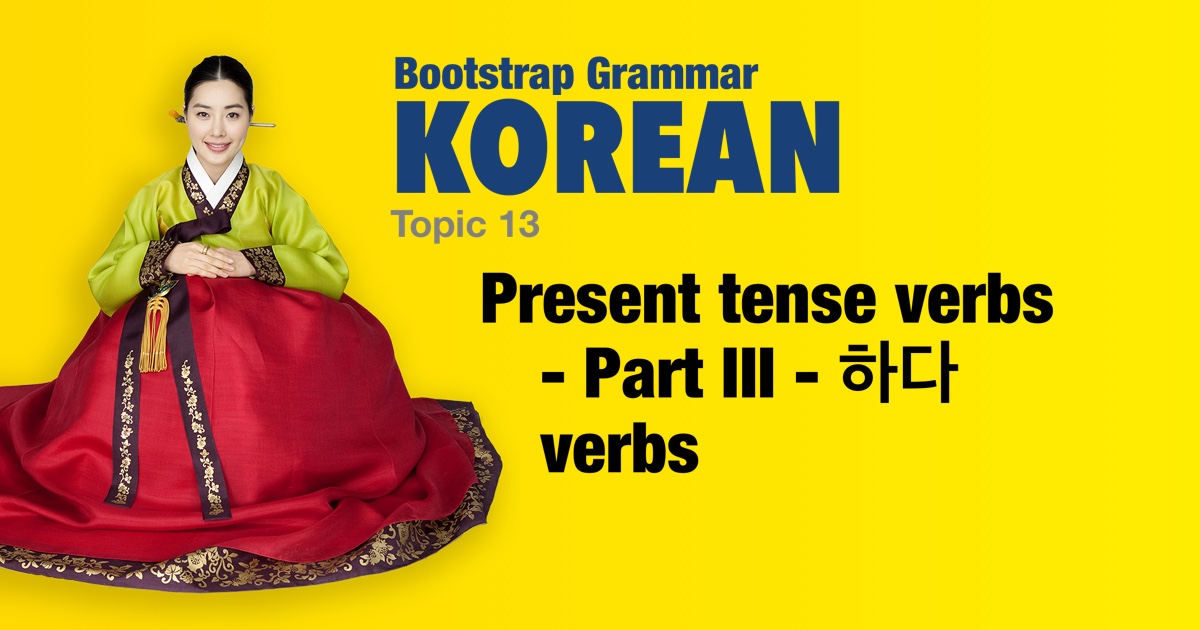Korean grammar - Present tense verbs - Part III - 하다 verbs |
|||
|
|||
Pattern: 하 + 아요 ⇒ 해요 The very common verb 하다 means 'to do' or 'to make'. There are many common verbs in Korean that are formed by joining a noun with the verb 하다 (to do). -- For example: 말하다 (to talk, to speak) is 말 (speech) + 하다 (to do) The ending 하다 conjugates a little differently than other verbs. Instead of becoming 하요 as you’d expect from the rules above, it becomes 해요. |
| Examples: | |
|
의사가 일해요.
The doctor works.
|
|
|
아기는 벌써 말해요!
The baby already speaks!
|
|
|
남자는 운동해요.
The man exercises.
|
|
|
아버지는 요리해요.
(My) father is cooking.
|
|
|
아버지가 운전해요.
(My) father drives.
|
|
|
학생은 밤에 공부해요.
The student studies at night.
|
|
|
새는 저녁에 노래해요.
A bird sings in the evening.
|
|
|
민수는 아침에 수영해요.
Minsu swims in the morning.
|
|
|
언니가 숙제해요.
(My) older sister is doing homework.
|
|
|
왜 걱정해요?
Why are (you) worrying?
|
|
|
누가 전화해요?
Who is calling (on the phone)?
|
|
|
교수는 생각해요.
The professor is thinking.
|
|
|
누가 청소해요?
Who is cleaning?
|
|
|
오늘 진수가 도착해요.
Today Jinsu arrives.
|
|
|
수민이는 내일 출발해요.
SuMin departs tomorrow.
|
|
|
나는 요즘 매우 행복해요.
I am very happy these days.
|
|
|
승희와 준수가 결혼해요.
Seung Hee and JunSu are getting married.
|
|
|
왜 민수가 걱정해요?
Why is Minsu worrying?
|
|
 |
|




